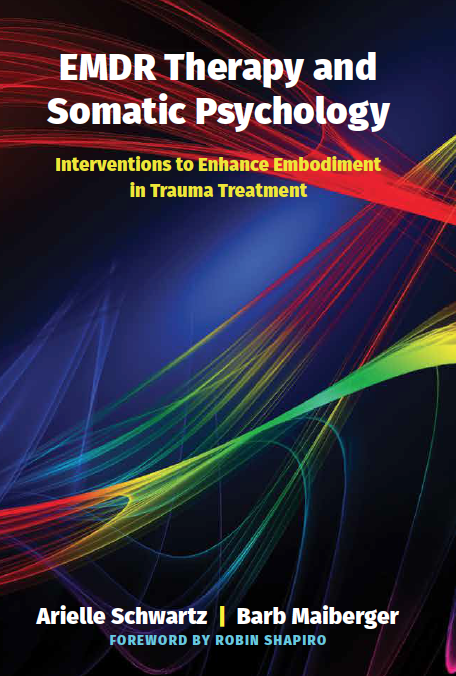
DBT for trauma treatment offers increased self-control and can help you feel grounded in your life, here and now. Dialectical behavior therapy (DBT) was originally developed in the 1980s as a specific type of cognitive behavioral therapy for the treatment of borderline personality disorder. More recently, DBT has been applied to treat other disorders, and has been found particularly beneficial for PTSD. This therapy is founded upon principles of Zen Buddhist philosophy and contemplative practices. For example, the term “dialectical” refers to a synthesis of opposites, which is a core aspect of Zen practices.
The primary dialectic within DBT is the polarity between acceptance and orienting toward change. Here, we recognize that radical self-acceptance of who you are is a necessary condition for change and growth.”
–Dr. Arielle Schwartz

So much of the world around us tends to focus on short-term desires rather than long-term goals. However, this approach does not apply to trauma recovery. Instead, the transformational work that moves you from pain to possibility requires a similar mindset to a marathon runner. You will likely experience times when you want to give up. Sometimes, you might feel that this is simply too difficult. You might start to believe that other people have the capacity for growth, but that it is not possible for you. Nonetheless, you have chosen to stay the course. By staying engaged and committed to your healing process, you have acknowledged the fruitlessness of stagnation. You have chosen to reclaim your power. This will help you to harness the energy necessary to create needed changes in your life.

Typically, DBT for trauma involves learning skills that focus on the development of mindfulness, emotion regulation, distress tolerance, and interpersonal effectiveness.

Within the context of DBT for trauma, you learn mindfulness skills to develop your capacity to cultivate acceptance. Acceptance helps you recognize that uncomfortable experiences do not necessitate escape tactics or reactivity. DBT offers the concept of “Wise Mind,” which represents the optimal balance of your thinking or “reasonable mind,” and your feeling or “emotional mind”: an integration of logic and intuition that can help you feel calm and centered.

The aim of this approach is not to get rid of your emotions, rather it is to reduce suffering related to ineffective reactions to your emotions. An example would be lashing out at a supportive partner in fear or anger when perhaps they’ve done nothing wrong—this reaction causes additional suffering for you and your partner. DBT for trauma distinguishes that difficult feelings are not destructive or the result of a bad attitude. These emotions are simply meant to be felt, and this is where the mindfulness and acceptance come in. Emotion regulation helps you learn to distinguish between feelings and “action urges,” which encourages you to reflect on your thoughts and emotions before jumping to reactions or behaviors.

Pain and distress are a basic part of life, and sadly, they cannot be entirely avoided. Increasing your distress tolerance in DBT for trauma helps you to handle painful emotions skillfully. Sometimes skillful action involves acceptance—welcoming reality as it is, without needing to resist or change it. Other times, skillful action requires change; such as recognizing when it is important to leave an unhealthy situation.

The DBT skills taught for interpersonal effectiveness emphasize assertiveness, boundaries, and coping with conflict. Assertiveness focuses on developing your capacity to ask for what you need, even though you may be told no or risk feeling rejected. Self-assertion involves building self-respect and cultivating a sense of your own worthiness. Skills for interpersonal effectiveness include learning to address conflicts gently, such as by refraining from put downs or name calling, respecting yourself and others, ensuring that you are behaving fairly, apologizing when you have done something wrong, and being truthful. These basic skills can be powerful catalysts for inner strength and positive self-esteem.

Engaging a “half-smile” is a valuable way to change your mental state and cultivate a serene feeling in the moment. This practice involves relaxing your face and then slightly turning up your lips. As you smile, imagine your jaw softening and a relaxed feeling spreading across your face, your entire head, and down your shoulders. Start by practicing the half-smile while you feel calm, and eventually engage the practice while reflecting on a difficult event.

The Complex PTSD Workbook is available on Amazon! Click here to check it out.

Connect to this post? The EMDR Therapy and Somatic Psychology book, is available on Amazon! Click here to check it out and increase your toolbox for healing. An integrative and effective approach to healing from trauma.

Dr. Arielle Schwartz is a licensed clinical psychologist, wife, and mother in Boulder, CO. She offers trainings for therapists, maintains a private practice, and has passions for the outdoors, yoga, and writing. Dr. Schwartz is the author of The Complex PTSD Workbook: A Mind-Body Approach to Regaining Emotional Control and Becoming Whole (Althea press, 2016) and co-author of EMDR Therapy and Somatic Psychology: Interventions to Enhance Embodiment in Trauma Treatment (Norton, 2018). She is the developer of Resilience-Informed Therapy which applies research on trauma recovery to form a strength-based, trauma treatment model that includes Eye Movement Desensitization and Reprocessing (EMDR), somatic (body-centered) psychology and time-tested relational psychotherapy. Like Dr. Arielle Schwartz on Facebook,follow her on Linkedin and sign up for email updates to stay up to date with all her posts.

Arielle Schwartz, PhD, is a psychologist, internationally sought-out teacher, yoga instructor, and leading voice in the healing of PTSD and complex trauma. She is the author of five books, including The Complex PTSD Workbook, EMDR Therapy and Somatic Psychology, and The Post Traumatic Growth Guidebook.
Dr. Schwartz is an accomplished teacher who guides therapists in the application of EMDR, somatic psychology, parts work therapy, and mindfulness-based interventions for the treatment of trauma and complex PTSD. She guides you through a personal journey of healing in her Sounds True audio program, Trauma Recovery.
She has a depth of understanding, passion, kindness, compassion, joy, and a succinct way of speaking about very complex topics. She is the founder of the Center for Resilience Informed Therapy in Boulder, Colorado where she maintains a private practice providing psychotherapy, supervision, and consultation. Dr. Schwartz believes that that the journey of trauma recovery is an awakening of the spiritual heart.